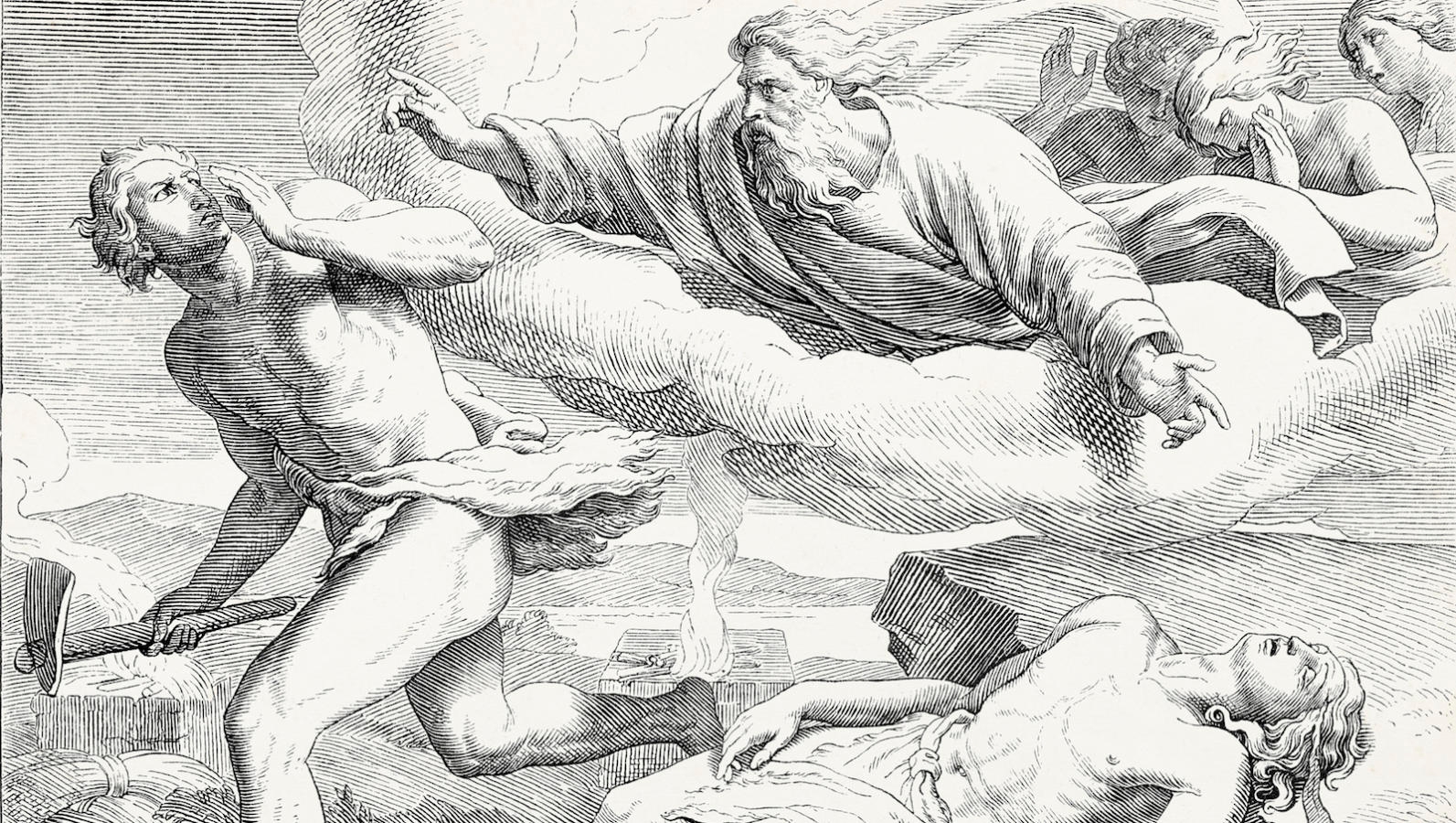The story of Cain and Abel — in which one brother kills another and then, approached by God, responds “Am I my brother’s keeper?” — is one of the most famous in the Bible. It appears in Bereshit, the first of the 54 Torah portions.
The full text in Hebrew and English can be read here: Genesis 4:1-4:24
Summary of the Cain and Abel Story
Adam knew his wife Eve and when she conceived and bore Cain she said, “I have born a man with the help of God.” Eve then bore Cain’s brother Abel. Cain became a farmer and made an offering of his fruit to God. Able became a shepherd and gave the best from his flock of sheep. God smiled upon Abel but not upon Cain. Cain became greatly distress. God said to Cain, “Why are you sad? You can improve. Now is the time you must choose to act good or bad. Sin lusts after you but you can dominate it. Evil tempts you so that you can learn to master it.”
In time, Cain killed Abel. God said to Cain, “Where is your brother Abel?” Cain said, “I do not know. Am I my brother’s keeper?” God said, “Your brother’s blood cries to me from the ground so now this soil shall no longer give you strength and you shall become restless upon the earth.” And Cain replied, “My sin is greater than I can bear and someone will kill me” God said, “I shall put a mark on your forehead so any would be killers will know your death will be avenged seven-fold.”
Cain left God’s Presence and settled in the land of Nod with his wife. He became a city-builder and they had a son Enoch to begin the lineage of Cain. The lineage of Adam begins with Eve giving birth to Seth and then Enosh. (From Nancy Reuben Greenfield’s Summary of Parashat Bereshit)
Read about Midrash on the Cain and Abel story here.
Read a commentary on Cain and Abel here.

Help us keep Jewish knowledge accessible to millions of people around the world.
Your donation to My Jewish Learning fuels endless journeys of Jewish discovery. With your help, My Jewish Learning can continue to provide nonstop opportunities for learning, connection and growth.
Midrash
Pronounced: MIDD-rash, Origin: Hebrew, the process of interpretation by which the rabbis filled in “gaps” found in the Torah.



